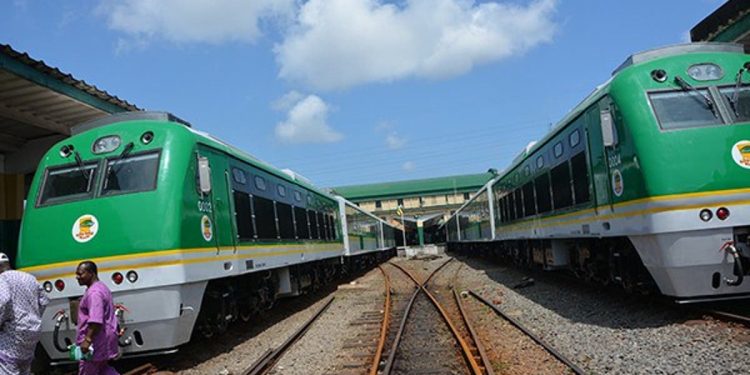TRANSPORT: The present hike in the price of diesel in Nigeria is negatively impacting on the operations of the Nigerian Railway Corporation (NRC), especially in its capacity to field full capacity of available train coaches in the existing routes.
- Diesel prices have skyrocketed in the recent time in the country, affecting the cost of transportation.
- The negative impact has affected the operations of the Nigerian Railway Corporation.
- Consequently, the Corporation has been unable to operate in full capacity in some train routes.
What We Know
In an interview with Punch, the Managing Director of the Nigerian Railway Corporation, Fidet Okhiria, the NRC boss has confirmed that the current skyrocketing price of diesel has negatively affected their operations.
The most visible negative impact of this development is the decision to reduce the daily number of trips they are sued to in a particular route due to the rising cost of buying the automotive gas oil, better known as diesel in the country.
In particular, the number of trips on a route like the Lagos-Ibadan train service has been directly affected.
According to Fidet Okhiria, the NRC’s Managing Director, the Lagos-Ibadan route had before now been running Six trips every day.
This has now been sliced downwards by 75%, leaving only 2 trips on the route per day. This in turn has also reduced the daily turnover of the Corporation on the route.
Notable Quote
“The Lagos-Ibadan train service is running, but we have reduced the number of trips on that route because of the diesel problem. We reduced the number of trips we are running because of the hike in diesel price,” Okhiria was quoted as saying.
“We are now doing two return trips as against six, which by now should have gone to 10. So we run just two trips now due to the diesel problem.”
“We just can’t increase it by ourselves. The government has to do that. We have made some recommendations. But even with the recommendations we made, the new price of diesel has overshot our workings as contained in the recommendations,” Okhiria said.
“However, we don’t want to price ourselves out of the market too, because the price of petrol is not increasing as such, rather the increase is little when compared to diesel price. And you know we are competing with transporters on roads.”
Takeaway
Clariform reports that despite this hike in the cost of diesel, the NRC boss said that it is not within their power to also hike the charges to correspond with the cost of diesel.
Consequently, considering the reduction in the number of trips, there is obviously a significant hit on the revenue to government. The train fares paid by passengers are still the same, while the cost of operation continues to rise for the NRC.
There is also the fear that this will also negatively affect the capacity of the government to meet up with the repayment of the loans with which the train project was executed.
Considering this apparent loss in revenue, Fidet Okhiria, the NRC’s Managing Director also told Punch that they have made recommendations to the supervising Federal Ministry of Transportation for upward review of the charges charged for train services.
Catch-up
There is unconfirmed reports that the rail transport sector contributed Six Billion Naira in 2021 to the country`s revenue.
Therefore, considering this apparent loss in revenue, Fidet Okhiria, the NRC’s Managing Director also told Punch that they have made recommendations to the supervising Federal Ministry of Transportation for upward review of the charges charged for train services.
Clariform investigation shows that the price of diesel has moved up about 28 per cent since March 2022, when it sold N625 per litre in Lagos. It currently sells for N800 per litre as the time of reporting.
Experts who have spoken about this development have tried to link the price hike to what is happening on the global community. Currently there is disruption in the global energy sector.












